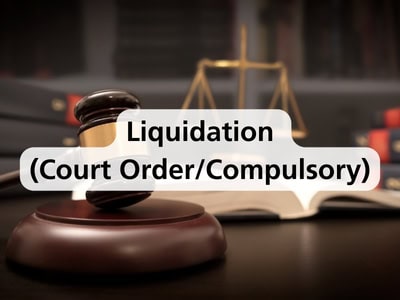Liquidation by Court Order/Compulsory Liquidation in Hong Kong: An Overview
 Liquidation by Court Order, commonly known as Compulsory Liquidation, is a legal process in Hong Kong where a company is forced to wind up by court order. This procedure is initiated when a company faces insolvency or fails to meet its financial obligations, compelling creditors, shareholders, or regulatory authorities to seek a court-ordered liquidation.
Liquidation by Court Order, commonly known as Compulsory Liquidation, is a legal process in Hong Kong where a company is forced to wind up by court order. This procedure is initiated when a company faces insolvency or fails to meet its financial obligations, compelling creditors, shareholders, or regulatory authorities to seek a court-ordered liquidation.
Initiation and Grounds for Compulsory Liquidation
Compulsory liquidation can be triggered by creditors, shareholders, or regulatory bodies filing a winding-up petition with the court. Grounds for such action include the company’s inability to pay debts, insolvency, or failure to comply with legal requirements. Once a winding-up petition is filed, a court hearing is scheduled to assess the validity of the grounds presented.
Court Hearing and Appointment of Liquidator
During the court hearing, evidence supporting the company’s financial difficulties is presented. If the court deems the grounds valid, a winding-up order is issued, and a liquidator is appointed to oversee the liquidation process. The liquidator takes control of the company’s assets, sells them, and distributes proceeds to creditors based on their priority.
Effect on Company Operations
Upon the issuance of a winding-up order, the company’s powers are suspended, and normal operations cease. The appointed liquidator assumes control to settle outstanding debts and liquidate assets. The process concludes when all assets are sold and the company is officially dissolved.
Distribution of Assets and Stakeholder Implications
The liquidator follows a predetermined hierarchy when distributing assets, prioritising secured creditors, preferential creditors, and then unsecured creditors and shareholders. Compulsory liquidation has significant implications for stakeholders, including potential recovery for creditors, potential loss for shareholders, and potential job losses for employees.
Legal Consequences and Conclusion
Directors and officers may face legal consequences, including personal liability or disqualification if their actions contribute to the company’s financial distress. The compulsory liquidation process aims to protect the interests of creditors and stakeholders while ensuring the orderly winding up of the company.


